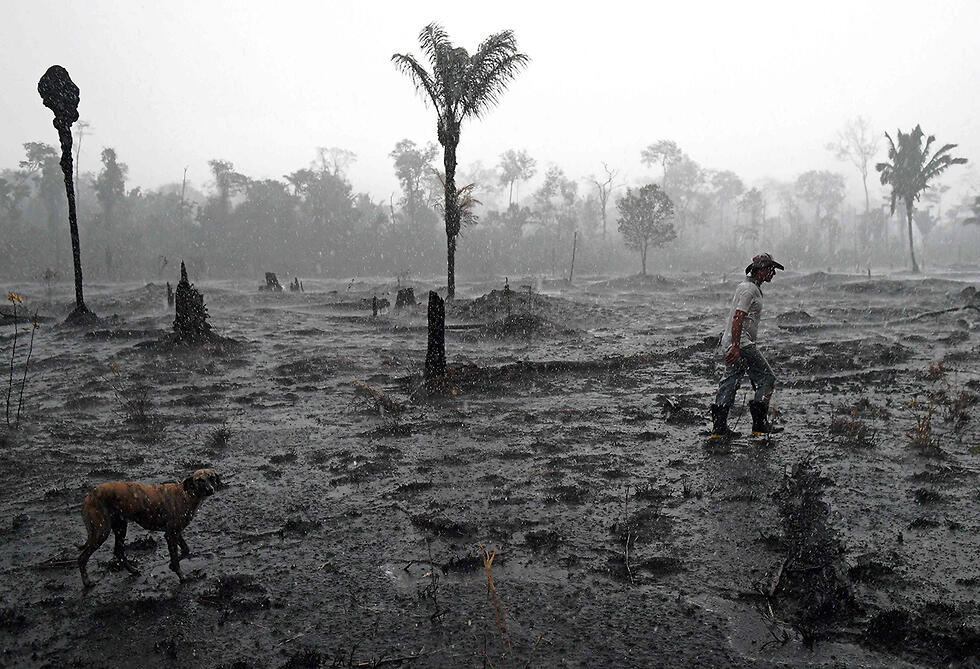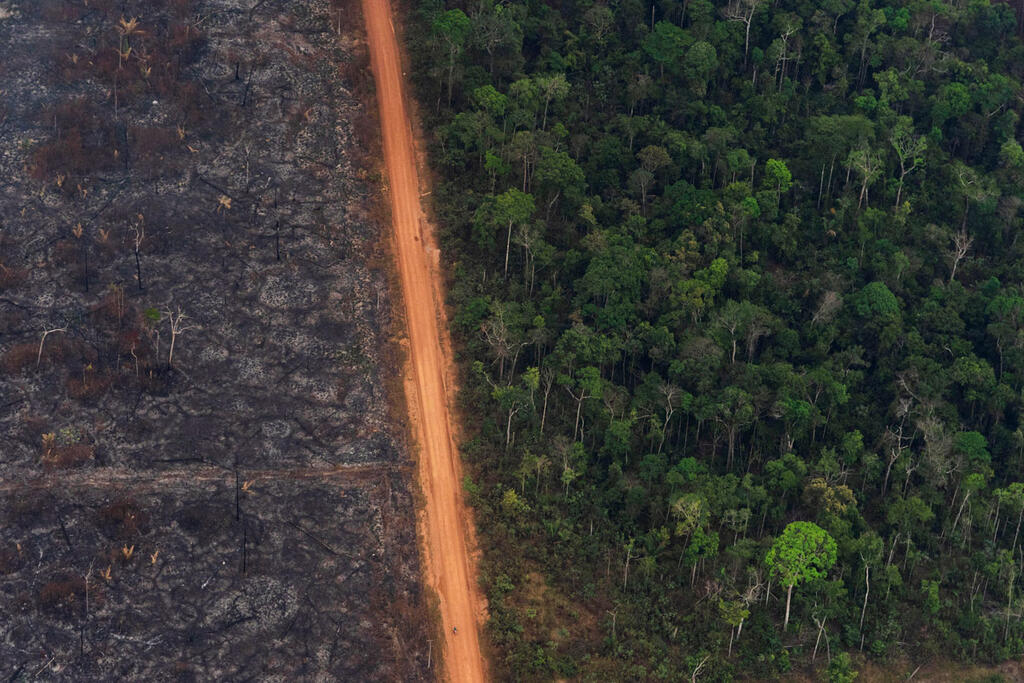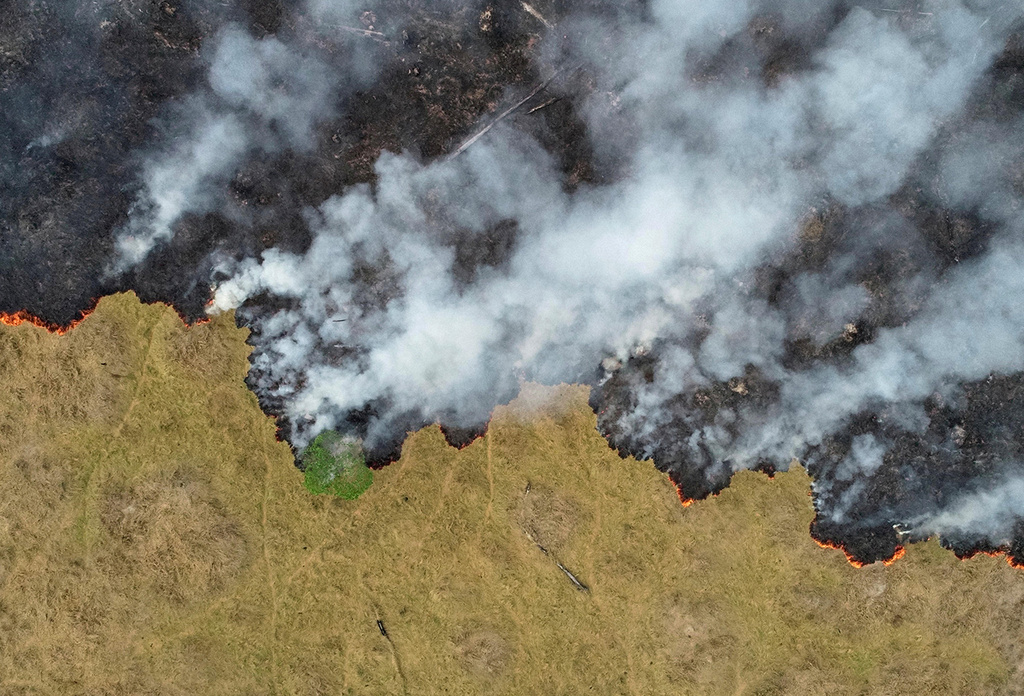Getting your Trinity Audio player ready...
More than 100 countries representing over 85% of the world's forests, including Israel, agreed on Tuesday at COP26, the United Nations climate summit to end deforestation by 2030, which scientists say is a major driver of climate change.
More than $19 billion divided to $12 billion in public funds and $7.2 billion in private money have been pledged toward the plan, which is also backed by Brazil, China, Colombia, Congo, Indonesia, Russia, and the United States.
Forests are considered important ecosystems and an important way of absorbing carbon dioxide - the main greenhouse gas - from the atmosphere. But the value of wood as a commodity and the growing demand for agricultural and pastoral land is leading to widespread and often illegal felling of forests, particularly in developing countries.
Campaign group Human Right Watch cautions that similar agreements in the past have failed to be effective. Luciana Tellez Chavez, an environmental researcher at the group, says strengthening Indigenous people's rights would help prevent deforestation and should be part of the agreement.
The Bezos Earth Fund pledged $2 billion Tuesday to fight climate change through landscape restoration and the transformation of agricultural systems.
"Our commitment today supports a three-fold imperative - we must conserve what we have, restore what we've lost, and grow what we need in harmony with nature," the fund's founder, Jeff Bezos, said in a statement.
The $2 billion pledge at COP26 is part of $10 billion that the Amazon founder committed earlier this year to spend by 2030 in an effort to battle climate change.
The Bezos Earth Fund plans to spend $1 billion mainly in the United States and Africa, planting trees to better secure eroding landscapes and restoring areas that capture high levels of carbon dioxide. The remaining $1 billion will be earmarked for transforming agricultural systems to try to increase crop yields, reduce food waste and encourage more plant-based diets.
A coalition of governments and private funders announced plans at COP26 Monday to invest $1.7 billion to aid Indigenous communities and protect biodiverse tropical forests in the next four years.
Governments from the United States, United Kingdom, Norway, Germany, the Netherlands, and 17 other private funders said the money will support “activities to secure, strengthen and protect Indigenous Peoples’ and local communities’ land and resource rights,” and provide other kinds of aid, including for group activities.
“We call on other donors to significantly increase their support to this important agenda,” the donors said in a statement. It did not specify which communities would get the funding.
A spokesperson for The Ford Foundation, one of the founders, told The Associated Press the governments are providing approximately $1 billion, while the rest will come from the philanthropies. In addition to the Ford Foundation, funders include Amazon founder Jeff Bezos’ Bezos Earth Fund and former New York City Mayor Mike Bloomberg’s Bloomberg Philanthropies.
In March 2021, a report by the Rainforest Foundation Norway was published, indicating that humans damaged or destroyed nearly two-thirds of the tropical rainforest around the world, which is crucial for the effort of mitigating global warming.
The comprehensive report suggests that of some 14.5 million square miles of tropical rainforest, which once covered the earth, only 36% are still intact. 34% of the trees were completely erased, and another 30% were damaged. The report also shows that since 2002, more than half of the destruction has been in the Amazon region of South America, and rain forests within borders between countries.




